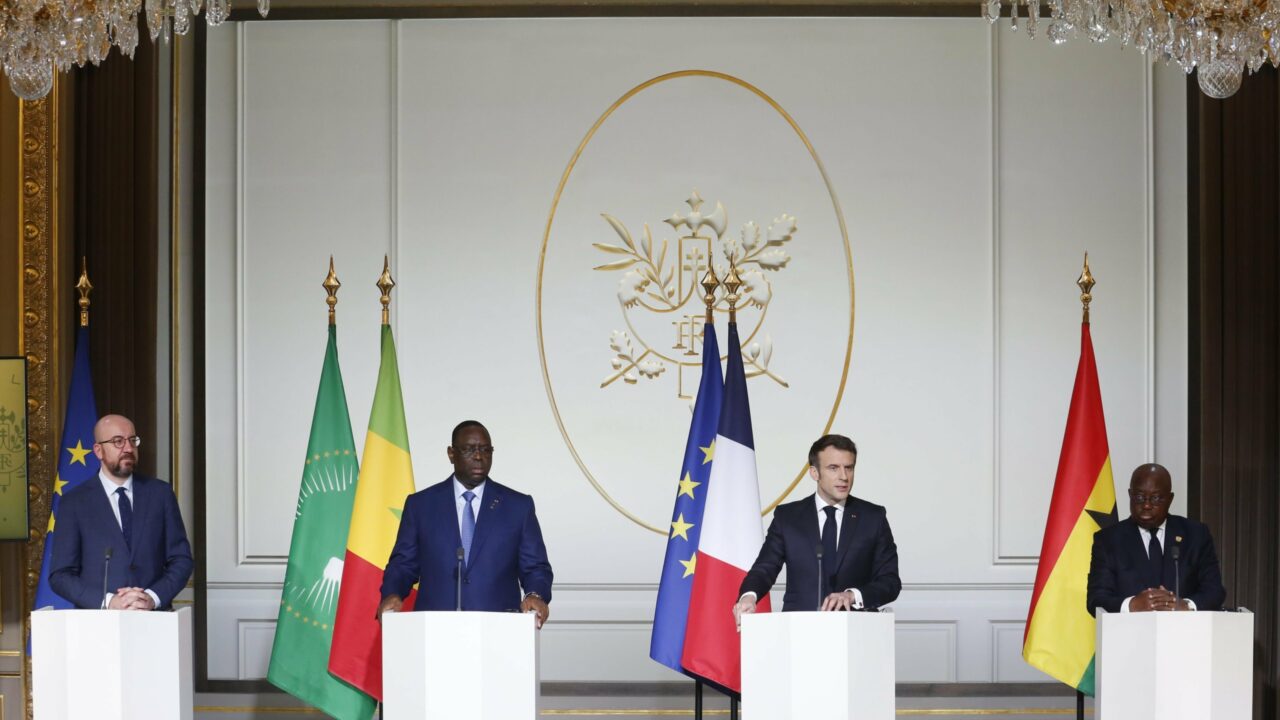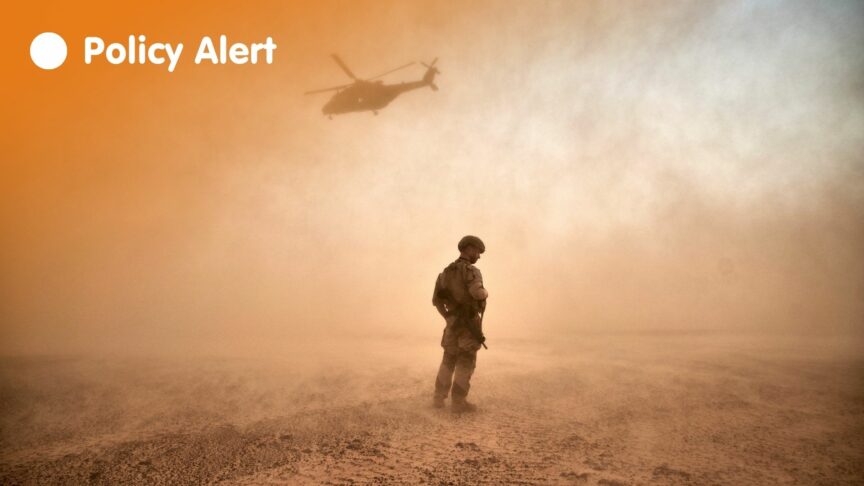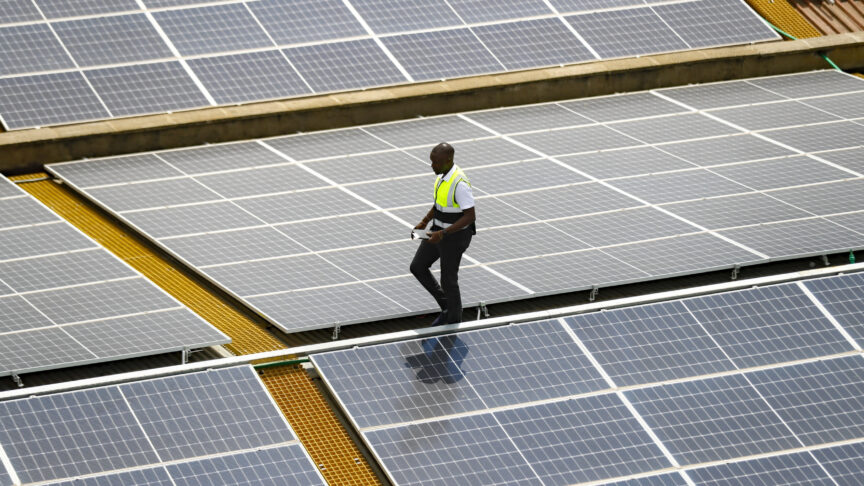The roots of peace: Why Europeans should help re-establish support for local dialogue in the Sahel
It is necessary to move beyond overly militarised strategies for stabilisation in the Sahel. Local dialogue initiatives can address the roots of conflict – but require consistent buy-in from national governments
It is an oft-repeated truism that there is no military solution for the Sahel crisis. Nevertheless, strategic partnerships with France, which withdrew its troops from Mali and Burkina Faso over the past year; and Russia, which is scaling up its presence in both countries, have similarly stressed a military-led approach.
Yet, since 2021, Niger’s leadership has invested considerable political capital in engagement with jihadist-linked insurgents and in local dialogue initiatives, with previous governments in Mali and Burkina Faso following suit. France’s withdrawal should be further enabling this approach. Indeed, the withdrawal was the main precondition for dialogue of al Qaeda-affiliate Jama’at Nusrat al-Islam wal-Muslimin (JNIM), and even JNIM’s more intractable rival – the Islamic State Sahel Province (ISSP) – has seemed more willing to engage with governments in recent months. But new leaderships in Burkina Faso and Mali have rescinded their predecessors’ commitments to aligning their national strategies with local dialogue initiatives.
This alignment is crucial: clashes between groups at the local level fuel the broader conflict between states and insurgents – meaning any prospective political settlement between insurgents and the state will need to tackle local sources of tension. What now requires articulation is how to move beyond overly militarised strategies for defeating ‘terror’ and begin to frame and address the local roots of conflict in terms that are meaningful to front-line rural communities.
Local dialogue initiatives have shown great potential in this regard – but, to be successful, they require strong support from national governments. The three central Sahel countries’ experiences in recent months provide important lessons for how Europeans could help Mali and Burkina Faso get back on track.
Niger
In Niger, President Mohamed Bazoum, following a regionally exceptional democratic transition of power in 2021, quickly implemented an “outstretched hand” policy. Through this, he instructed high-level national institutions to develop pathways for dialogue with militants. The country’s interior ministry and its High Authority for the Consolidation of Peace (HACP) have opened talks with factions of ISSP and JNIM, exploring options ranging from ceasefires, renditions, and prisoner releases to more substantial reform-oriented negotiations.
Thanks in part to these talks, violence in the North Tillaberi area that lies along the Mali border – which had soared in recent years – dropped by nearly 80 per cent in 2022.[1] Security reforms along the Nigerien side of the Mali border were also fundamental, demonstrating to insurgent groups that Niger had the military means to uphold any agreement. Engagement and reforms of this nature meaningfully boost the prospects of local dialogue initiatives.
In January 2023, Niger’s interior minister and HACP officials joined community leaders and NGOs in Banibangou to celebrate the signature of an agreement between Peul and Djerma communities, the fruit of two years of hard work. Community leaders said the agreement was an almost instant stabiliser: markets reopened, farmers resumed tilling their fields, displaced populations started to return home, and talks opened about disarming a communal militia that has harassed civilians.
Mali
In 2020, Mali’s transitional authorities invested high-level support in pursuing a dialogue-led solution to fighting in the country’s central Niono commune. This strategic reserve of land and water resources has in recent years witnessed intensive battles between JNIM’s Katiba Macina front and Malian forces and proxy armed groups. A state-mandated delegation led by the High Islamic Council of Mali (HCIM) negotiated a peace agreement between Katiba Macina and Donso militants that went into effect in March 2021. Actors understood the ceasefire as a foundation for exploring arrangements that would address deeper issues, including equitably regulating land and water access and protecting civilians from insurgent groups.
But, in May, Mali’s military rulers closed ranks in a coup-within-a-coup that consolidated their grip on power. By July, the fledgling agreement was dead. The main reason for the accord’s collapse, according to one of its lead negotiators, was the retraction of national support following the second coup. The new leadership did not honour commitments to implement a monitoring committee, resulting in the escalation of a minor incident and the collapse of the deal. In the following months, the new junta, emboldened by support from Wagner mercenaries and new weapons shipments from Russia, went on to adopt a more militant, sovereigntist approach to achieving victory in central Mali – within which there is little space for local dialogue.
Burkina Faso
A similar sequence of events unfolded in Burkina Faso in 2022: transitional authorities immediately invested national political capital in local dialogue initiatives, only to be toppled by a second coup that divested their buy-in just as quickly.
Humanitarian groups had welcomed junta leader Paul-Henri Sandaogo Damiba’s initial efforts. They hailed an “extremely positive” transition from a political environment that forbade and could criminalise any dialogue or even contact with insurgents, to one that allowed for tentative pathways towards demobilising these groups.[2] High-level support for dialogue from the ministry of social cohesion and national reconciliation encouraged the emergence of multiple new community-led local dialogue initiatives in war-torn locales, raising hopes in the northern town of Djibo especially – which had suffered for months under jihadist blockade. But progress was slow and uneven, and confusion persisted between local and national authorities’ understanding of ‘dialogue’ versus ‘negotiations’.
High-level support for dialogue encouraged the emergence of multiple new community-led local dialogue initiatives in war-torn locales
In September 2022, Captain Ibrahim Traore, a younger officer with front-line combat experience, led a second coup – which officially ended this new chapter. He represented many in the military who were dissatisfied with the results of Damiba’s willingness to pursue dialogue. This new junta instead resolved to ‘fight terror’ by recruiting tens of thousands of civilian auxiliaries, making it clear that local dialogue efforts would not receive state support. More than a year later, 370,000 people remain trapped in Djibo, boiling wild leaves with salt for between 35 and 85 percent of their daily food intake.
The way forward
Local dialogue initiatives are not perfect. They are high risk and face a slew of hurdles – at times, they can even endanger mediators or mark communities who sign on for peace as targets for punishment by hardliners. They do, however, bring into focus local factors of contestation, most often non-ideological disputes centred on representation and resource management. They also have the potential to nurture the kinds of political discussions and arrangements that, with national buy-in, can sustainably address the roots of conflict. In short, local dialogue initiatives are a necessary step away from overly militarised counter-terror strategies – even if they require patience and clarity in what they can achieve.
The European Union and its member states can learn from experiences in the central Sahel as they seek to define new stabilisation goals for the region. Mali’s and Burkina Faso’s new leaders may have divested too soon from local dialogue initiatives, but Niger’s progress should indicate the importance of reviving support for such initiatives as an effective way for Europeans to engage.
European partners should gently remind transitional authorities in Mali and Burkina Faso of the benefits of local dialogue. They should also point out the usefulness of high-level institutions such as Mali’s HCIM and Burkina Faso’s national reconciliation ministry in bringing national support to local talks. Mali’s reported military cooperation with the Wagner Group and tensions between the junta and HCIM leaders represent significant hurdles, so it may make more sense to start with Burkina Faso. European encouragement could involve providing technical forms of support, such as advisors and grants for NGOs and institutions. This could facilitate proposals for ways to resuscitate national strategic support for local initiatives, better align national strategies with local approaches in the future, and enable learning from Niger’s approach in North Tillaberi.
[1] ACLED data, author’s forthcoming publication, 2023.
[2] Author’s interview, senior humanitarian official, Ouagadougou, February 2023.
The European Council on Foreign Relations does not take collective positions. ECFR publications only represent the views of their individual authors.



